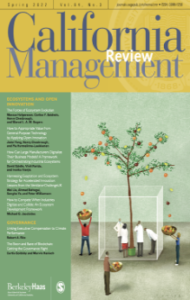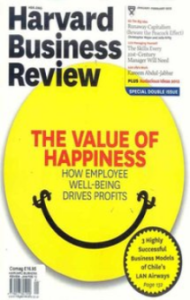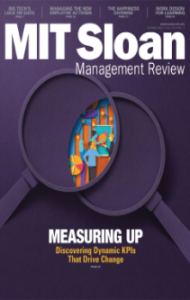









Paul J.H. Schoemaker, Ph.D., has an extensive academic background. He received multiple degrees and has written numerous articles for various journals. Some of his academic accomplishments include:
Besides many articles, Paul has published 12 books. His first book, Experiments on Decisions Under Risk (Kluwer Nijhoff Publishing, 1980), received a two-page profile in Fortune Magazine. With J. Edward Russo, he wrote Decision Traps (Doubleday, 1989; Simon & Schuster, 1990), which discusses various biases in decision-making (as profiled in Newsweek). With Paul Kleindorfer and Howard Kunreuther, Schoemaker wrote an acclaimed graduate-level text titled Decision Sciences: An Integrative Perspective (Cambridge University Press, 1993). With George Day, he edited the book Wharton on Managing Emerging Technologies (Wiley, 2000). He wrote Winning Decisions (Doubleday, 2002) with J. Edward Russo and published a managerial book about scenario planning titled Profiting from Uncertainty. Schoemaker published Peripheral Vision with George Day (Harvard Business School Press, 2006) and wrote Chips, Clones, and Living Beyond 100 (Pearson Publishing, 2010) with his wife, Joyce. He then published two books on innovation and leadership, titled Brilliant Mistakes (Wharton Digital Press, 2011) and Winning the Long Game with Steve Krupp (Public Affairs-Perseus, 2014). With George Day, Paul published See Sooner-Act Faster with George Day: How Vigilant Leaders Thrive in an Era of Digital Turbulence (MIT Press, 2019), and his latest book is titled Advanced Introduction to Scenario Planning (Edward Elgar Publishing, 2022).
Below you will find photos of book covers and brief comments about Paul’s last five published books, two of which he co-authored. A few selective endorsements are listed as well; for full details, see Amazon. Paul’s books have been translated 47 times, covering a total of 17 foreign languages overall.
Providing a panoramic overview of the evolving world of scenario planning, this advanced introduction uses topical case studies to analyze the developing methodologies of scenario planning. Written by Paul J. H. Schoemaker, a leading authority on the topic, this book synthesizes rigorous theory and practical experiences, including best practices, normative views, and future challenges or opportunities for scenario planning. Interdisciplinary in its approach, this Advanced Introduction will prove invaluable to students and scholars of public policy, business management, and organizational studies. Its tools and practical advice will also be a vital resource to practitioners and policy leaders involved in leading or implementing scenario planning in their organizations.
“This volume, illustrated with compelling examples, presents in a coherent way the views of the most cited scenario planning scholar. Schoemaker’s approach to scenario planning is to inform decision-making by foreseeing possibilities early. The book covers theoretical as well as practical aspects of scenario planning which will be of interest for beginners and seasoned practitioners alike.”
– Rafael Ramirez, University of Oxford, UK
“Schoemaker’s book is, simply, a tour‐de‐force from one of the founders of both the academic study and consultancy application of scenario planning to improve decisions in the face of future uncertainty. In it, he covers the development and status of research findings that underpin growing academic and practitioner interest in our post‐Covid era.”
– George Wright, Strathclyde University, UK
(with George Day)
The authors present managers and leaders with a practical framework to develop organizational vigilance, drawing on diverse real-world business cases. They analyze how Adobe and Intuit strategically moved to the cloud, how Philips and Shell rode the cleantech wave, and how Amazon, as well as MasterCard, created a distinct competitive edge. This book argues that vigilance is a team sport that cannot rely on one gifted leader; instead, it must engage the entire executive team plus their extended networks. If not, blind spots will continue to extract excessive tolls.
“This book is a wakeup call! Try Day and Schoemaker’s vigilance test! If your business scores low, you are doomed…unless you wake up in time.”
– Philip Kotler, S.C. Johnson & Son Distinguished Professor of International Marketing, Kellogg School of Management, Northwestern University
“Day and Schoemaker offer a great roadmap for leaders wishing to hone their dynamic capabilities, drawing on best practices as well as the latest research from multiple academic disciplines. Their vigilance model has been tested with field data, practical wisdom and analytical modeling in line with current advances in building foresight. It is also a terrific read.”
– David J. Teece, Tusher Professor, Institute for Business Innovation, Haas School, UC Berkeley and Chairman of Berkeley Research Group
(with Steven Krupp)
“ … Compelling and useful…This important book combining strategy and leadership makes it one of a kind.”
– Raghu Krishnamoorthy, Vice President, Executive Development, and Chief Learning Officer, General Electric
“I loved the anecdotes, from so many angles. Finally, a book on strategic leadership that is grounded in real word situations!”
– Jean Pierre Garnier, Chairman of the Board, Actelion; Operating Partner, Advent International; Retired Chief Executive Officer, GlaxoSmithKline
“…a captivating case for strategic leadership, thinking broadly and acting decisively.”
– Michael Useem, Professor of Management and Director of the Center for Leadership and Change at the Wharton School, University of Pennsylvania
“Schoemaker presents broad and deep perspectives on why mistakes remain underutilized portals of discovery in most organizations. Although it may disrupt your mental models, this engaging, wide-ranging, and innovative book is a must-read.”
– Clay Christensen, Kim B. Clark Professor of Business Administration, Harvard University, Author of The Innovator’s Dilemma, The Innovator’s Prescription, and The Innovator’s Solution
“Brilliant Mistakes is an utterly brilliant book. I love ideas that are counterintuitive! Most of my competitors won’t get it because it is not logical. To think that so many innovations are mined from the world of unintended consequences sets the whole paradigm of innovation on its ears. Kudos to Schoemaker for highlighting such an important aspect of creating value from unexpected outcomes! It is a must-read for every researcher and innovation leader in every organization.”
– Larry Huston, CEO, 4iNNO; Former Innovation Officer, Procter & Gamble; and Creator of the Connect + Develop Innovation Business Model
(with Joyce Schoemaker)
“What a fascinating book!!! The authors have really mastered all the aspects (social, human, scientific and business) of the biomedical revolution that is taking place this century. Awesome.”
– Giancarlo Barolat, M.D., Director, Barolat NeuroScience, Presbyterian St. Luke Medical Center, Denver; Formerly Professor of Neurosurgery at Thomas Jefferson University, Philadelphia
“The Schoemakers have given us an incredibly useful book to stimulate that thinking and to shed light on what the next two decades might and should hold in store. One could not ask for a better guidebook to an exciting if challenging future.”
– Professor Arthur L. Caplan, Director of the Center for Bioethics and Hart Professor, University of Pennsylvania
For more, see my full list of articles.
Paul has published numerous articles and chapters, too many to enumerate here. The section below covers the last five years of publications. Those aimed at managers are marked with an asterisk (*) at the end. PDFs of many of the articles can be obtained from Google Scholar, Research Gate, or Wharton’s Mack Institute for Innovation Management.
Below are brief descriptions of Paul’s past and present research streams, covered in chronological order since they are connected over time. Nearly all relate to his overarching interest in how risk and uncertainty are managed in people’s minds and inside such social collectives as groups, functions, divisions, companies, industries, markets, or even societies. His approach ranges from purely descriptive analyses to prescriptive and idealized normative perspectives. To date, Paul has published 12 books and 120+ articles, as well as over 77 posts in his Decision column for Inc.com, plus various blogs, editorials, webinars, and YouTube videos. Paul’s early empirical research was focused on Expected Utility theory covering gain, mixed, and loss gambles, as well as experimental tests of Prospect Theory. His 2001 book Winning Decisions: Getting It Right the First Time, authored with Jay Russo, applied behavioral decision theory to business practice. This work extended their 1990 book Decision Traps by addressing how managers can improve their problem framing, intelligence gathering, and choice procedures, as well as techniques to improve learning from experience individually and in an organization. Jointly with Robert Gunther, Paul explored learning from mistakes, including their 2007 Harvard Business Review article, “The Wisdom of Deliberate Mistakes.” This research later resulted in Paul’s 2001 book Brilliant Mistakes: Finding Success on the Far Side of Failure. He also examined the role of intuitive decision-making with Robin Hogarth in a highly cited book review of Malcolm Gladwell’s best-seller Blink for the Journal of Behavioral Decision Making.
The second area of active research is reflected in Schoemaker’s 2002 book Profiting from Uncertainty: Strategies for Succeeding No Matter What the Future Brings as well as his 2022 book Advanced Introduction to Scenario Planning. This research was stimulated by his two-year sabbatical with Royal/Dutch Shell’s corporate planning group in London in the early 1980s. These books explain how to approach the future holistically rather than piecemeal, the value of flexible strategies and options thinking, plus the importance of monitoring and real-time adjustments. To navigate the unknown well, capabilities will be needed that foster agility and responsiveness throughout the organization. Navigating uncertainty requires real-time knowledge management, and above all, seasoned leadership to help separate white noise from signal.
A third area of research concerns how managers deal with emerging technologies for which uncertainty is usually very high. Much of this research was conducted through Wharton’s Mack Center for Technological Innovation, where Paul served as Research Director for ten years. The program’s first research phase was summarized in the 2000 book Wharton on Managing Emerging Technologies, which he edited together with George Day. This was followed up with research focused on managing uncertainty in specific technology domains, such as the confluence of life sciences and information technologies (for more detail, click here). This industry supported exploration was published in a 130-page research report titled “The Future of the Biosciences,” which Paul edited with Michael Tomczyk. It was also profiled in the 2010 book Chips, Clones and Living Beyond 100 by Paul and his wife Joyce Schoemaker, who has a Ph.D. in microbiology and helped cover the life sciences.
The fourth area of research, prompted by Paul’s executive education programs at Berkeley and Wharton, examined the evolution of North American credit unions amid profound changes in financial services. Traditionally, the US credit union sector was populated by many small players operating cooperatively with a strong focus on member service, especially the underserved. The changing nature of this industry, as it competed more with banks and other financial service providers, became the subject of several research reports by Schoemaker and his colleagues, including “2010 Scenarios for Credit Unions” (2004), “The Chameleon Scenario Revisited” (April 2000), and “Key Success Factors for Credit Unions” (Feb. 2002); also, see the Future Scopes series. The strategic, managerial, organizational, and cultural issues facing credit unions present a microcosm of the challenges all organizations face overall. Paul emphasized the growing importance of industry leadership, rather than just organizational, in a 2013 California Management Review article with Tom Donaldson on self-inflicted industry wounds. In a 2019 chapter of subsequently edited Wharton book on risk management, Paul underscored the need for industry leadership when a few rotten apples can spoil the game for many.
A fifth area of research explores how organizations can develop better peripheral vision and scanning capabilities. Building on a conference organized by Professors Day and Schoemaker at the Wharton School’s Mack Center for Technological Innovation, this research examines how to recognize and act upon weak signals from the periphery before it is too late. In follow-up, Day and Schoemaker edited a special issue on this for Long Range Planning, co-authored a Harvard Business Review article on “Scanning the Periphery” (Nov. 2005), and published a book titled Peripheral Vision (Harvard Business School Press, 2006). Day and Schoemaker thereafter examined the unique role of leadership in developing vigilant organizations in their book See Sooner-Act Faster (MIT Press, 2019). Their conceptual model of vigilance was validated through survey research of three distinct leadership groups: international companies, US credit unions, and American Foundations. Four factors emerged from the 351 organizations surveyed as most critical: leadership commitment to being vigilant, investments in foresight capabilities, placing uncertainty centrally in the strategy process, and improving coordination and accountability to sense or seize opportunities.
Paul is continuing research on dynamic leadership, including collective leadership at an industry rather than only the firm level. Paul’s articles and have profiled leaders operating at societal levels as well, such as Martin Luther King, Jr., Nelson Mandela, and Pope Francis. Paul was interviewed on this by Wharton’s Sirius radio program, as well as profiled in Knowledge@Wharton. Also, he recently contributed an invited essay for an extensive jubilee book celebrating the 100th anniversary of the University of Amsterdam’s Economics and Business faculty, with a focus on the moral and ethical challenges facing leaders today compared to the University’s 1632 inaugural oration by the famous Dutch humanist Caspar Barlaeus about becoming a Mercator Sapiens (wise merchant).
Paul has given over 125 invited presentations around the world, covering more than 60 cities from Auckland, Bangalore, Cape Town, and Chengdu to Honolulu, Jeddah, Prague, Santiago, and Vancouver. Below are some of the ones given since 2014.